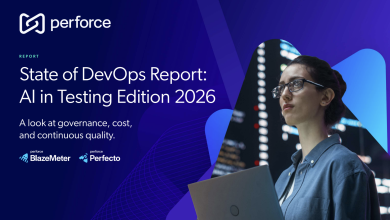As the world is emerging through the COVID-19 pandemic, it feels decidedly different than this time last year, from both a personal and professional standpoint. As many clutched onto their jobs during the uncertainty of the 2020 job market, there was also a boom in the need for technology – particularly in the AI and data arena.
To adapt to the pandemic, organisations were forced to utilise new technology to survive, placing a premium on professionals who can convert quick-fix solutions into long term gains.
The demand for technological expertise has played a significant role in what is being called ‘The Great Resignation’. According to a summary from the Department of Labor, April saw more than four million people quit their jobs in the US alone, which is the biggest spike on record.
Within our data, there was no clear evidence of abnormally high resignation rates, but a talent shortage that has been anticipated for years is now upon us. So, where does this leave data and AI professionals?
Listening to the Experts
We’re hearing more and more statements about the state of tech talent with overwhelming predictions that there is too much work and not enough people. But it is always important to hear what’s going on from those in the trenches, managing AI projects daily.
When nearly 3,000 data and AI specialists were asked about their intention to change jobs in the next year, only 22% indicated that this was in the cards for them. However, that doesn’t mean that everyone feels fairly compensated in their current job. There was an annual average increase in salary of just 2.25%, with 8% of respondents seeing a decrease in their salary and 18% reporting no change.
In line with what is acknowledged throughout the industry, women reported being compensated significantly less regardless of education or job title – just 84% of the average salary for men. And this doesn’t seem to be changing for the better. More women than men saw their salaries decrease and women were more likely to see their salaries increase by smaller increments.
The salary discrepancy also leads to bigger problems when we consider bias within AI. If there is a gender bias in the industry, data will reflect that, leading to a gender bias in the technology. This was seen recently when Amazon had to abandon a project to build an AI recruitment tool, as engineers found that it was discriminating against female candidates.
Companies that are serious about building out their workforces must invest in learning and training to grow talent internally. This will not only help employers retain talent, but will also help employees adapt to technological change, which will ultimately allow them to uplevel their knowledge and skills, ultimately leading to bigger bumps in compensation.
That data reflects this: those who spent more than 100 hours in a training programme over the last year saw the largest salary increase among their peers. Not surprisingly, those that took 1-19 hours of training over the last year saw lower salary increases across the board. It’s clear that organisations are taking a very critical look at training when it comes to compensation, and the less training, the lower the salary increase.
Understanding the value of AI
While analysing the salaries of AI and data professionals is interesting, it is also important to put this in the wider context of what’s next for the future of work. As businesses and even entire nations better understand the value of AI, the demand for talent in this area will only increase. But rather than seek out new talent, organisations would be smart to evaluate what they’re doing to upskill the current workforce.
The UK Chancellor, Rishi Sunak, recently announced a new £34 million National Artificial Intelligence Fund to support the creation of elite AI scholarships to create a high-tech economy of the future. He believes that investing in AI, and the talent behind it, has the potential to increase productivity by £200 billion a year. This has the potential to lead to increased salaries in the future, as well as increase the demand for AI talent across the country.
AI initiatives coming from the highest ranks of government puts the need to train the new generation of data scientists at the forefront. It reaffirms that this is a profession that is vital to growth, and even transforming whole economies. While investing in training and development in these areas is not the only factor at play, it’s indicative that world leaders are feeling the pressure to keep up.
Moving Towards the Future
Although training the next cohort of AI and data professionals will change the landscape of compensation within the field, leaders also need to appreciate the talent that lies within their organisations.
By investing valid time and resources into employees, organisations can keep pace with business and survive in today’s increasingly competitive technological landscape. If employees are knowledgeable about the latest technology and have effective training, it will inevitably help them and the wider organisation succeed.
Although there wasn’t powerful evidence of ‘The Great Resignation’ in our data, there was an indication that organisations need to prioritise encouraging their teams’ interest in learning and assist them accordingly. This is arguably the only way to prepare for the new wave of technology.




